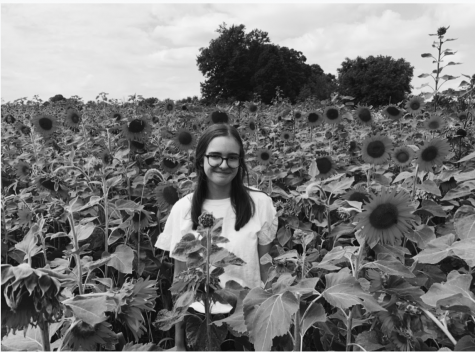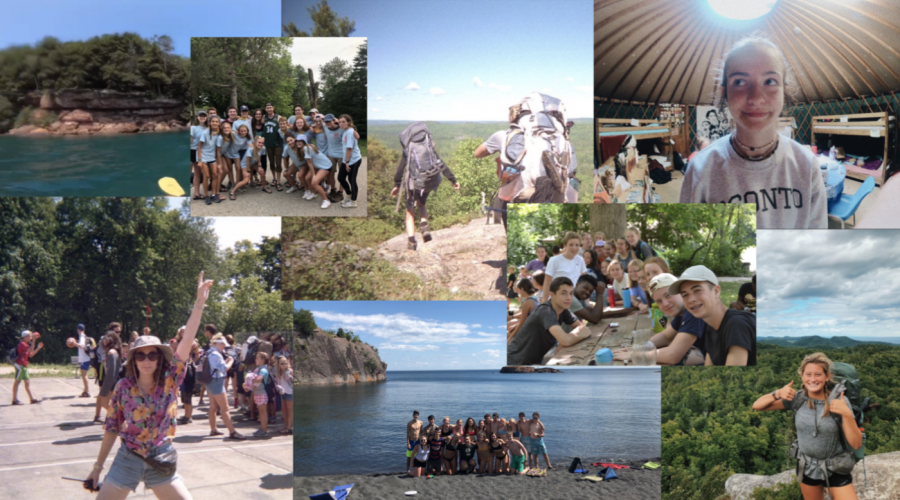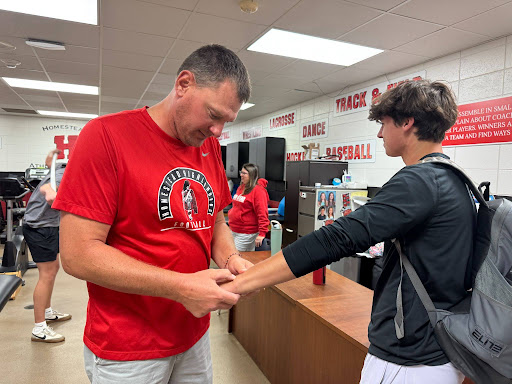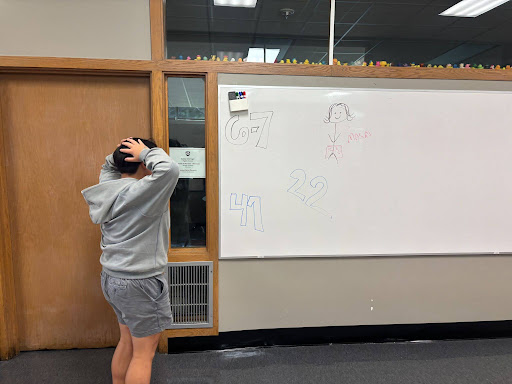Camp Minikani stays ‘in the spirit’ amidst pandemic
Camp Minikani’s community shares their favorite memories, ranging from hiking along the Ice Age Trail to just hanging out in the cozy cabins.
Summer camps worldwide were revitalized due to the coronavirus pandemic, and Camp Minikani in Hubertus, Wisc. was no exception. Nevertheless, they ran their day camp program and hope to run overnight programs this summer.
The camp has been up and running since 1919, and they celebrated their 100 year anniversary in 2019. They offer programs ranging from day camps to full fledged expeditions in the Rocky Mountains and Apostle Islands, all accommodating for kids of any background.
On a typical summer day, pre-pandemic, campers gather at Council Bluff for Password, an opening skit that provides a message for the day. Then comes skills: three different activities chosen by campers that could include making pottery, sailing, and even climbing on the high ropes course. After lunch, campers spend time with their cabins doing more themed activities; learning team building skills and reaching outside their comfort zones.
In the evening comes Robert Coburn, Homestead sophomore’s favorite part of camp: “Camp-wide games during the week such as the dodgeball tournament,” better known to the campers as Evening Activity. As the day rounds out, cabins reflect on important issues in the world during vesper. They sleep like a log after an eventful day, the sun rises, and the cycle begins again.
This routine was nothing similar to the summer of 2020’s schedule. All overnight programs were stopped, day camp was limited, and everyone on camp was to wear a mask and social distance. Remarkably, no cases arose from Minikani in 2020, despite summer camps’ germ-filled nature.
A New York Times article delving into the dangers of reopening camps said, “In these close-knit environments, it is easy to contract viruses, bacteria or other microbes that brew in airway droplets or linger on dirtied hands,” but Minikani persisted in an effort to keep the spirit of camp alive, and they succeeded.
Why put so much effort into keeping Minikani’s doors open? Kids can occupy themselves in another way during the summer, right? Yes, this may be true, but Minikani and other camps alike provide kids with an environment of pure acceptance and growth.
A study of the psychological benefits of summer camps states, “A great majority of campers leave camp with increased emotional intelligence.”Many members of the Leadership Training program, one that trains teens to use their leadership skills in a camp and real world environment, can attest to this effect.
The overwhelming majority of LTs agreed that camp allows them to grow, and that it is so important for kids to have an experience like that in their lives, if only once. “Camp has completely shaped my life, it has given me so much perspective and it’s accepting environment always provides a place to grow… everyone there always pushes me to step outside my comfort zone and become a better person,” Maeve James, junior, said.
To become a better person at camp is the goal, which can be met in several ways, one of which being the Ragger program. Kids make goals based on the rag level they are taking, and when the day comes, a rag is tied loosely around their neck. It reminds them of the goals they set and holds them accountable for being a better person. They are so important to some that they carry their rags with them throughout their entire life.
“I do believe that our persistent focus on goal setting and providing campers the opportunity to think about who they are and who they want to be is incredibly special” Rachel Kornetsky, summer camp director at Minikani, said.
Camp Minikani hopes to resume this tradition this coming summer, with all campers masked and tested of course. Gabe Cicero, junior and LT at camp, is excited to go back. “Everyone needs camp now more than ever… I am extremely excited to reconnect with people I don’t see very often, especially people who live on the other side of the state or the country.”
“I am most excited about how powerful it will be for everyone to be back at camp this summer,” Kornetsky said. “I’m excited to…get away from drama of the real world,” Mr. Coburn said.
The camp community is more than ready to return to business as usual- usual meaning awesome- but there is a multitude of considerations to be made. As the Times article said, “there’s no way to socially distance with an overnight camp,” which is true; however, Minikani’s staff has found a solution. Each overnight camp cabin will serve as a ‘household’ and the campers will be each other’s close contacts. Units (the girls, boys, and explorer units) will serve as ‘neighborhoods’ and will be treated as they would be in the real world. Masks are required when social distancing is not feasible, and campers will receive health checks every day. Touché, COVID-19.
This is a challenge worth the reward according to returning LTs and campers alike. “I’m so excited to come back to camp this summer to be with my friends and feel the spirit of Minikani again,” James said.
This spirit of Minikani that James refers to is contagious, and it sticks with the community long after summer ends. Kendall Coburn, Abby Moertl, and Maeve James, all juniors, loved spending time with their fellow leadership trainees, whether that be waiting tables during meals, making skits for kids to watch, or hiking on their week-long trip.
Although Kendall will not return this summer, she carries her friendships with her. “The friendships you make at camp are different than ones from school or sports, they have a different bond and you always know camp is there for you,” she said.
Minikani is such an important part of so many people’s lives, and reopening this summer, although daunting, will bring joy to so many children. Directors at camp are hard at work to make sure everything is just right.
“We are really intentional about how we can mirror the Minikani spirit in any change we make. For example, we know we can’t fit every cabin inside the dining hall safely this year – but we know that a part of eating in the dining hall that feels so special is coming together after dinner to sing songs and yell and have fun,” Kornetsky said. The Minikani community plans to keep a positive mindset going into things, making the best of every situation.
“Last year running only day camp, we quickly saw the reality of a phrase that is commonly used by staff, ‘Camp would still be camp even if all we had was a parking lot’. The Minikani spirit is in the people, and with committed community members, I’m confident that the feeling of camp will feel the same as it always has, even if it looks somewhat different,” Kornetsky said.

Olivia Cagle is a junior at Homestead. She is dedicated to her board positions in clubs such as GEMS, Film club, She’s the First, and WE club, and she...







Amelia Stastney • Mar 16, 2021 at 5:44 pm
Olivia Cagle!
I love this.
– Amelia